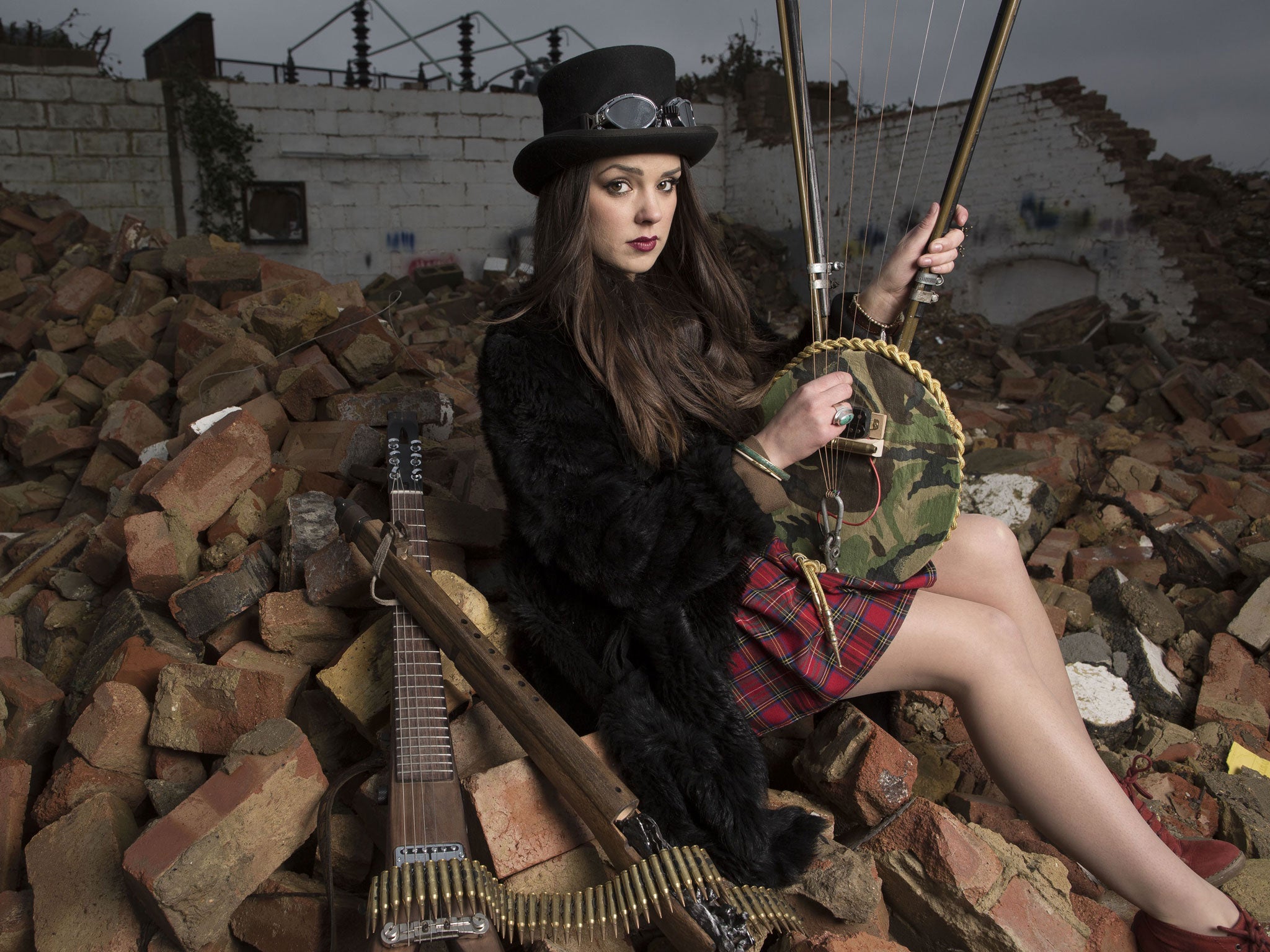Make music, not war: Post War Orchestra converts weapons into musical instruments

Turning pistols into piccolos sounds like the kind of hippie dream that died out with flared trousers. But a group of UK musicians is doing just that, taking the theatre of war and giving it its own orchestra pit.
The Post War Orchestra has launched a fundraising campaign to convert more weapons into instruments. It has already made six flutes out of old Lee Enfield rifles, and turned a Second World War helmet into a lyre. Now, it wants to raise £27,000 to create a full range of instruments suitable for all different musical styles.
The symbolism of converting instruments of death into tools capable of producing beautiful music is obvious enough. But the PWO believes it can have a powerful message, and is determined to make its music as polished and as varied as possible.
On Friday, the UK-based group launched its fundraising campaign, using the crowd-funding site Kickstarter.com. A deadline of 20 April has been set, and if insufficient funds are raised by then, it receives no money at all.
The PWO was created by the artist Hilary Champion, who got the idea to fuse weapons and music after watching television footage of Hurricane Katrina. "In about 2005 I had been noticing there was a lot of depressing coverage of war in the papers and on TV, and then I saw this guy gathering bits from what was left of his house after Hurricane Katrina. He got a broom and turned it around and started using it as a guitar. He started to laugh and I thought about the war coverage and how music brings people together," she said. "One day maybe we could have two tanks on top of a windy mountainside that are somehow wired together so that when the wind blows they act like a beautiful aeolian harp sending out gentle, soothing sounds across the valley below."
Among the PWO's instruments is a bazookaphone, which was made from a disposable grenade launcher, and features a wind-controlled interface. They have also turned a rocket launcher into a theremin, and are hoping to do the same with a Maxim machine gun. The easiest conversions, not surprisingly, have been in the percussion department, which includes empty ammo boxes and spent shell cases.
The orchestra has grown steadily since its foundation in 2009, and has the backing of prominent musicians including Bruce Woolley, who co-wrote the song "Video Killed the Radio Star". He has helped enlist the electronic music pioneer Thomas Dolby to collaborate on a track for the PWO's forthcoming debut EP, and the group hopes to attract other names – including Yoko Ono, whose themes and artistry have strong similarities to the PWO ethos.
"The first time we played we had no rehearsals and no experience of the instruments. Now we hope to play a range of music people can understand and make the transition from avant-garde to instruments that play reasonable structures and harmonic layers," Woolley said, adding there would be up to 12 people in the ensemble – which includes the composer Tim Wheater and singer-songwriter Ruby Fenn.
If it raises the funds, the group hopes to play the latest converted instruments at the Orchestra in the Field event at Glastonbury Abbey in July. Woolley said the ensemble would compose its own music as well as playing covers. Asked if it might perform Status Quo's "In the Army Now", the answer was a firm "no".
Join our commenting forum
Join thought-provoking conversations, follow other Independent readers and see their replies
0Comments